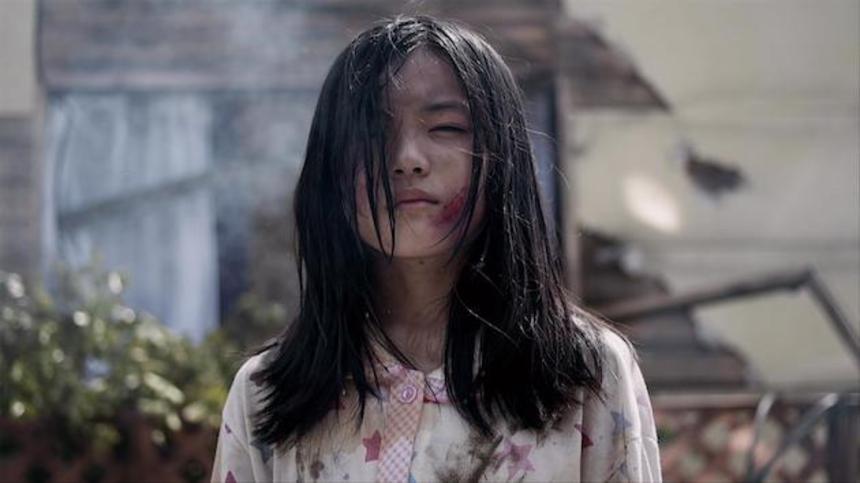Review: JOY OF MAN'S DESIRING, An Unusually Mature And Assured Feature Debut

The Great East Japan Earthquake of March 2011 set off a wave of independent films dealing with the aftermath of the horrible tragedy. Documentaries aside, the ones that definitely stand out amongst the myriad of pictures focusing on the aforementioned subject are Sono Sion's Himizu and The Land of Hope. The former, a hard-hitting dystopian drama, centers upon a couple of teenagers attempting to survive in a town devastated by a tsunami, whereas the latter, Sono's personal statement against nuclear power, focuses on a family trying to cope with a tragedy not seen in a generation.
Although Joy of Man's Desiring also features some fine performances by adult actors, their characters don't necessarily influence the story in any significant way and, even when they start to feel the weight of their own hidden pretensions, still remain in the shadow of the kids they're supposed to carefully look after.
The young protagonists that I'm referring to here are Haruna (Omori Ayane) and Shota (Oishi Ruku), age 12 and 5 respectively. Orphaned due to an unexplained natural disaster that claimed the lives of their parents and thoroughly destroyed their precious hometown, they soon move into their aunt and uncle's spacious and cozy house located in the city of Unzen, on the island of Kyushu, southern Japan.
Unfortunately, after a promising start to a new life, things take a turn for the worse and the loving family has to face the tragic past once again in order to remain sane and keep the family together. Haruna is unreasonably guilt-ridden, can't sleep at night and starts to feel increasingly uncomfortable with her own thoughts, while Shota, still unaware of the fact that mom and dad are dead, walks around the house asking difficult questions and takes trips to the nearby pier to wait his beloved parents.
Though slightly underdeveloped, there's also an interesting, more-than-adequate subplot that involves Haruna, Shota and the family's vey own only son. Due to a number of reasons, including various insinuations by his school buddies, Katsutoshi (Ohba Shumpei) feels threatened by and grows increasingly jealous of the 'intruders', but doesn't really get a chance to verbalize his feelings until a very memorable pajama scene that also indirectly signals the film's climax. At this point in time the kids realize that they've gotten themselves into a serious emotional charade and that their real home might be somewhere else entirely.
Omori Ayane's poignant, reserved performance is perhaps the film's strongest and subtlest asset. Though strong and fully aware of her responsibilities as an older sister, Haruna eventually breaks down. Silent long takes of her walking, especially the one filmed in an empty school corridor, mark the character's loss of innocence.
Filled with a close attention to detail and raw emotional honesty, Joy of Man's Desiring encapsulates the everyday struggles that children orphaned by disasters face. Elegant long takes enhance the film's decidedly pensive mood, while Inaoka Shingo's plaintive, delicate piano score underscore the audience's emotional involvement with Sugita's unusually mature and assured debut.
Clocking in at barely over 80 minutes, Joy of Man's Desiring never overstays its welcome, but demands patience and contemplation in a similar way that brings to mind Ozu's masterpieces. Kitagawa Yoshio's crisp, naturalistic cinematography, which feels remarkably true to its actual, beautiful locations, perfectly accentuates the anguish caught up in the images. A minimalist, heartbreaking film with great emotional power, Joy of Man's Desiring touches the heart and makes a strong lasting impression.

Do you feel this content is inappropriate or infringes upon your rights? Click here to report it, or see our DMCA policy.






